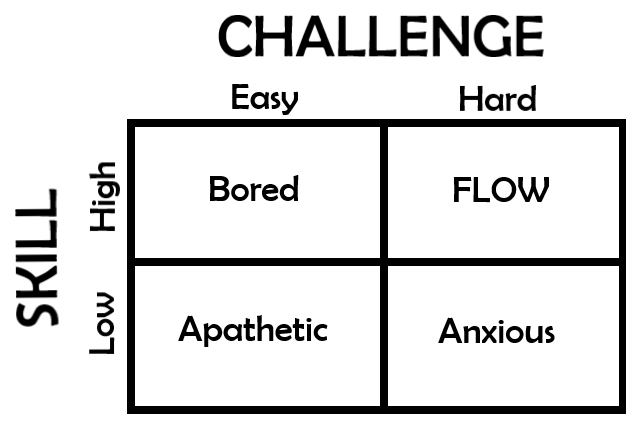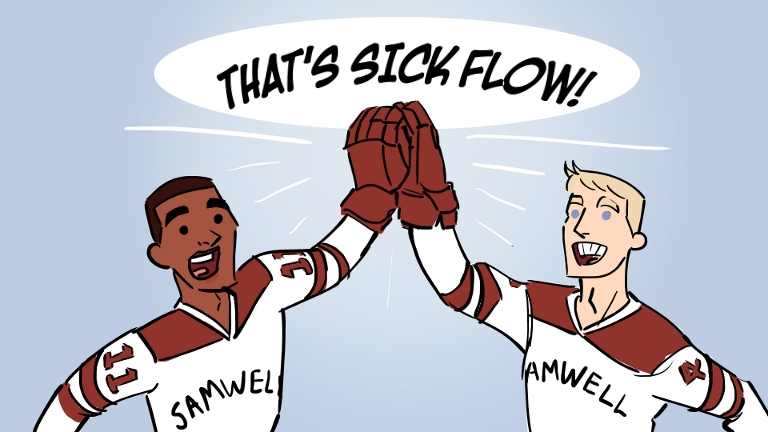On a previous post I mentioned the concept of Flow in relation to autotelism. Flow experiences happen when what we feel, wish and think are in harmony. It comes before “happiness” when you do something you like. Whenever you are so focused on doing something that you don’t even realize how long you’ve been doing it, you’re in flow. I think this feeling is pretty fun and it makes me want to continue learning new things, just to feel it again. Kind of like a runner’s high.
To achieve this state, you have to make sure the activity you’re performing has goals that are clear and compatible, it provides immediate feedback, and it fully uses your skills to overcome a challenge that’s just about manageable. Let’s use an example to go over the specifics:
The activity I pick is learning how to create a PivotTable in Excel.
Clear and Compatible Goals: The goal is clear: Be able to create a PivotTable. To find out if it’s compatible, I ask myself if it matches my overall goals: I will be able to process lots of data more quickly, giving me an advantage at work; it will reduce my stress level from banging my head against a wall of data, and it lets me go home more quickly. Check, check and check.
Provides Immediate Feedback: This works out really well because it turns out, if Excel doesn’t know what you’re trying to do, it will let you know immediately. No patience at all there.
It Fully Uses your Skills to Overcome a Challenge that’s Just About Manageable: Since I know how data on an Excel table works and I know a sufficient amount of formulas, this activity is using my existing skills. Because I don’t know how to create a PivotTable or how to show my data in a way that is helpful to me, I will be fully engaged in trying to figure it out. The key here is that it’s not too hard that I don’t see how I could do it, or so easy I lose interest.
When goals are clear, feedback relevant, and challenges and skills are in balance, attention becomes ordered and fully invested. The activity is now worth doing for its own sake.
Mihaly Csikszentmihalyi
How do you know if an activity will produce flow? Here’s a handy chart I made!

If you’re doing something that’s easy and doesn’t require much skill, you’ll be apathetic. If it requires your skills but it’s easy, you’ll be bored. The worst one is when you have a difficult challenge and your matching skills are low, then you’ll be anxious. The best is when a challenge is hard and your skillset is high to match, then you have flow! Unless you mean the one from Check, Please!, that one is definitely something else entirely (Go read it now!)

I lived this!!